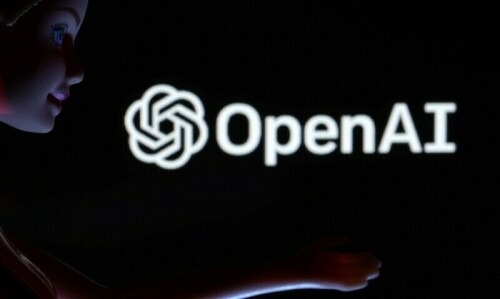LONDON: Tesla Inc assures its millions of electric car owners that their “privacy is and will always be enormously important to us”. The cameras it builds into vehicles to assist driving, it notes on its website, are designed from the ground up to protect your privacy.
But between 2019 and 2022, groups of Tesla employees privately shared via an internal messaging system sometimes highly invasive videos and images recorded by customers’ car cameras, according to interviews by Reuters with nine former employees.
Some of the recordings caught Tesla customers in embarrassing situations. One ex-employee described a video of a man approaching a vehicle completely naked.
Also shared: crashes and road-rage incidents. One crash video in 2021 showed a Tesla driving at high speed in a residential area hitting a child riding a bike, according to another ex-employee. The child flew in one direction, the bike in another. The video spread around a Tesla office in San Mateo, California, via private one-on-one chats, like wildfire, the ex-employee said.
Other images were more mundane, such as pictures of dogs and funny road signs that employees made into memes by embellishing them with amusing captions or commentary, before posting them in private group chats. While some postings were only shared between two employees, others could be seen by scores of them, according to several ex-employees.
Tesla states in its online Customer Privacy Notice that its camera recordings remain anonymous and are not linked to “you or your vehicle”. But seven former employees told Reuters the computer programme they used at work could show the location of recordings which potentially could reveal where a Tesla owner lived.
One ex-employee also said that some recordings appeared to have been made when cars were parked and turned off. Several years ago, Tesla would receive video recordings from its vehicles even when they were off, if owners gave consent. It has since stopped doing so.
“We could see inside people’s garages and their private properties,” said another former employee. “Let’s say that a Tesla customer had something in their garage that was distinctive, you know, people would post those kinds of things.”
Tesla didn’t respond to detailed questions sent to the company for this report.
About three years ago, some employees stumbled upon and shared a video of a unique submersible vehicle parked inside a garage, according to two people who viewed it. Nicknamed Wet Nellie, the white Lotus Esprit sub had been featured in the 1977 James Bond film, The Spy Who Loved Me.
Tesla Chief Executive Elon Musk had bought it for about $968,000 at an auction in 2013. It is not clear whether Musk was aware of the video or that it had been shared. Musk didn’t respond to a request for comment.
To report this story, Reuters contacted more than 300 former Tesla employees who had worked at the company over the past nine years and were involved in developing its self-driving system. More than a dozen agreed to answer questions, all speaking on condition of anonymity.
Reuters wasn’t able to obtain any of the shared videos or images, which ex-employees said they hadn’t kept. The news agency also wasn’t able to determine if the practice of sharing recordings, which occurred within some parts of Tesla as recently as last year, continues today or how widespread it was. Some former employees contacted said the only sharing they observed was for legitimate work purposes, such as seeking assistance from colleagues or supervisors.
The sharing of sensitive videos illustrates one of the less-noted features of artificial intelligence systems: They often require armies of human beings to help train machines to learn automated tasks such as driving.
Since about 2016, Tesla has employed hundreds of people in Africa and later the United States to label images to help its cars learn how to recognise pedestrians, street signs, construction vehicles, garage doors and other objects encountered on the road or at customers houses. To accomplish that, data labelers were given access to thousands of videos or images recorded by car cameras that they would view and identify objects.
Published in Dawn, April 8th, 2023















































Dear visitor, the comments section is undergoing an overhaul and will return soon.